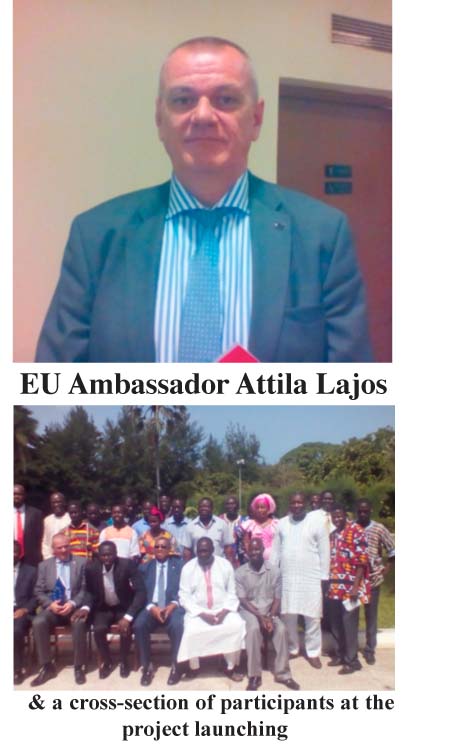
A
D35 million project for journalism and media technical capacity building in The
Gambia was launched on Wednesday at a hotel in Kololi.
The
project funded by the European Union would be implemented by the United Nations
Education, Scientific and Cultural Organisation, UNESCO.
It
was designed to build the capacity of media for a period of four months.
Speaking
at the launching ceremony, EU Ambassador to The Gambia Attila Lajos said the
objective of the project is to contribute to better democratic governance
through improving freedom of the press and the quality of information
available.
He
said the project promotes excellence and innovation in journalism, through
supporting journalism education as part of efforts to develop a free and
independent media.
“The
project also reinforces gender equality in the media through the selection of
target groups for the training activities and the development of training
curricula and materials,” the EU diplomat said.
EU’s
support of the project is premised on the fact that the media is also a driver
to economic growth.
“Investors
look to establish themselves in countries where there is a free media so they
have unhindered, reliable and credible sources of information, which in turn
allow them to make informed decisions,” Ambassador Lajos said.
“The
media has a vital role to play in promoting transparency and accountability
whether it is scrutiny of the performance of the government, unearthing
corruption or reporting crimes. The media has to be able to cover these
important issues in an open and balanced way.”
Jean-Pierre
Ilboudo, UNESCO representative to Namibia, said there is a need to set up a
framework of consultations between the government and media bodies to exchange
and discuss on issues of common interest, for both parties to contribute to the
economic and social development of the country.
Minister
of Information Sheriff Bojang claimed that The Gambia government provides an
enabling environment for journalists, adding that there is a need for dialogue
between the media houses and the government in order to achieve the desired
goal.
According
to him, there is freedom of the press and expression in The Gambia, looking at
the establishment of the newspapers and radio stations in recent years.
The
minister of Higher Education, Dr Ababucarr Senghore, said the project is
important for it would enhance professional and ethical journalism in the
country.
WHO
representative to The Gambia, Dr Charles Sagoe-Moses, said the successfully
implementation of the project would contribute to the 2030 development agenda
goal number 16: to promote peaceful and inclusive societies for sustainable
development, provide access to justice for all and build effective, accountable
and inclusive institutions at all levels.

